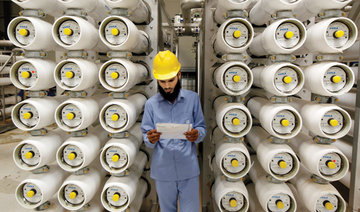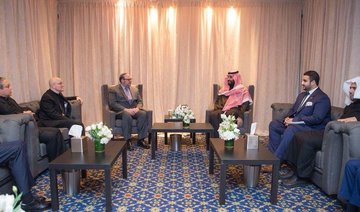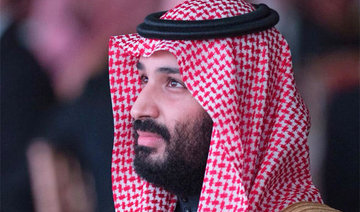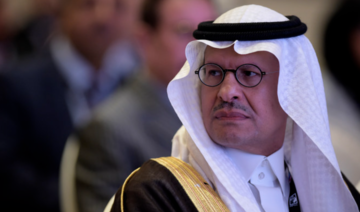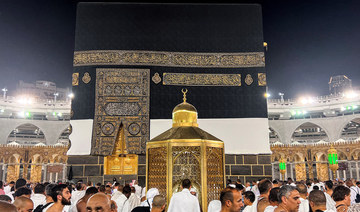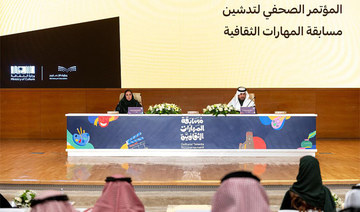SAN FRANCISCO: As water shortages become a reality across the globe, authorities in drought-prone areas are looking to Saudi Arabia’s desalination industry for inspiration.
The Kingdom produces more desalinated water than any other nation, with 27 plants transforming sea brine into five million cubic meters of fresh water a day.
The industry has grown rapidly in recent years. In January, the Kingdom announced plans to invest more than $500 million (SR1.874 billion) to build nine plants in Jeddah.
It is not the only area trying to meet the needs of a growing population demanding more fresh water. After experiencing acute drought between 2011 and 2017, the US state of California is expanding desalination projects. Grants of $35 million were approved this year for a variety of desalination ventures as municipalities across the state seek to diversify water portfolios.
Experts in California have been studying the Kingdom’s desalination projects. “The value of what is going on in Saudi Arabia and the Arab world is the recognition that water … is necessary for both long-term community and economic survival, and that good planning is key,” said Paul Kelley, the executive director of CalDesal, a not-for-profit advocacy group. He added that Saudi Arabia’s foresight in planning for a “water resilient” future was a lesson that California would do well to follow.
Increasing both the volume and efficiency of water production is among the many goals laid out in Saudi Arabia’s National Transformation Program (NTP) 2020 and Vision 2030, which seeks to wean the country from oil reliance, and build a more sustainable economy. At a conference last month, the Minister of Environment and Agriculture announced a $1.3 billion investment in water technology projects to upgrade and further develop infrastructure.
While cutting-edge desalination technology has been developed in California’s top research institutions for decades, complicated regulatory frameworks and politicians have hindered the broader application of the process, said Yoram Cohen, director of the Water Technology Research Center at the University of California, Los Angeles. “It’s one thing to develop the technology, it’s another to actually push for its deployment,” he added.
While acknowledging that the water needs of California vary greatly from those in Saudi Arabia, Cohen said the golden state could learn much from the political will shown in the Kingdom to prioritize desalination. “They’re moving forward,” he said of counterparts in Saudi Arabia.
In California, which sets strict limits on greenhouse-gas emissions, critics of desalination have long cited its environmental footprint as massive inputs of energy are required to run the plants separating salt from water.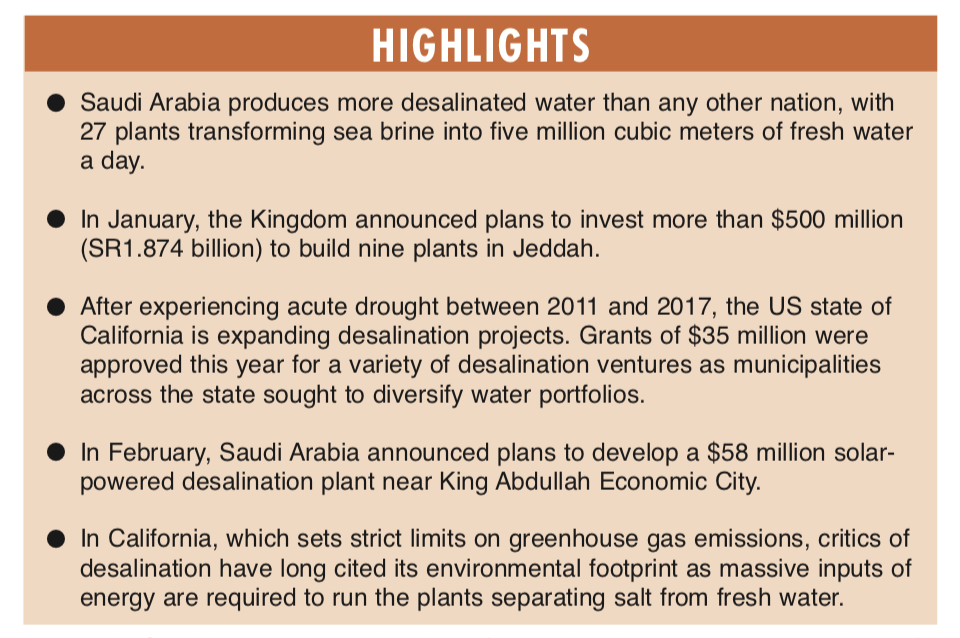
However the industry may be moving toward a greener, future. In February, Saudi Arabia announced plans to develop a $58 million solar-powered desalination plant near King Abdullah Economic City. Construction began on the project this month, with the plant scheduled to be up and running by 2020.
It is an important step forward, Cohen said: “It illustrates that one can move toward sustainability in a dual mode — where you use renewable energy and you use renewable sea water.
“You don’t want to continue desalinating using precious energy sources, including petroleum or gas: solar energy is the way to go. That’s an investment in the future.”
Creativity and good-planning will be necessary as both Saudi Arabia and California develop resource-management plans for the future, Kelley said. While Saudi Arabia has been “pushing the innovative envelope” by investing in desalination projects and research, examples of poor governance abound.
Aside from the dramatic water shortages seen in California during the recent drought, the recent admission by municipal leaders that Cape Town would run out of potable water by this summer has renewed calls for investment in desalination. “They could well have done some desalination and followed the model of Saudi Arabia and other places around the world to make sure that at least a third of their water supply was drought-resistant,” Kelley said of Cape Town.
With global warming increasing temperatures worldwide and once-predictable weather patterns thrown into flux, the Kingdom’s commitment to reliable supplies will be “very applicable to the rest of the world,” he added.
California looks to Saudi Arabia for desalination expertise
California looks to Saudi Arabia for desalination expertise
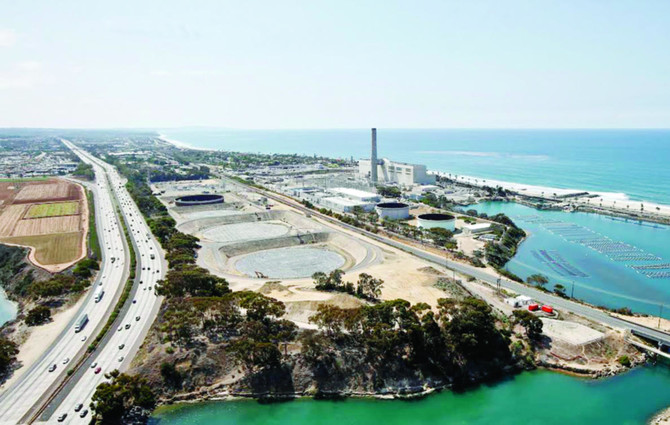
Saudi, Russian foreign ministers discuss ties in phone call
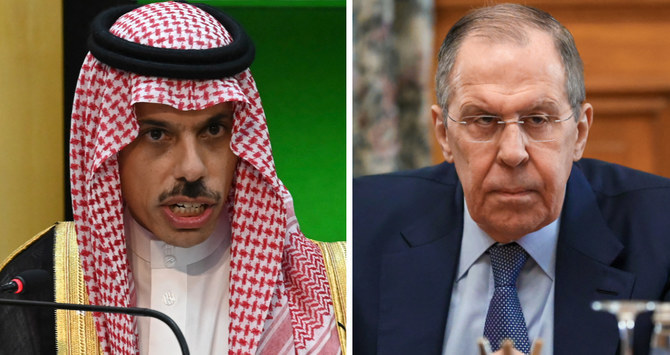
RIYADH: Saudi Foreign Minister Faisal bin Farhan on Tuesday received a phone call from his Russian counterpart Sergei Lavrov.
The Saudi Press Agency said both ministers discussed bilateral ties and issues of common interest.
Ministry launches service to hire seasonal Hajj workers

- The initiative allows businesses to engage a temporary workforce through seasonal contracts during the Hajj period
RIYADH: The Ministry of Human Resources and Social Development has launched the Ajeer Al-Hajj service for this year’s Hajj season.
The initiative allows businesses to engage a temporary workforce through seasonal contracts during the Hajj period.
The ministry is encouraging Saudis and expatriate residents interested in working at the holy sites during the Hajj season to upload their CVs on the Ajeer portal, the Saudi Press Agency reported on Tuesday.
This integrated platform connects job seekers with available positions, facilitating workforce management and streamlining processes for both businesses and workers during the Hajj season.
The launch of Ajeer Al-Hajj aligns with the ministry’s broader strategy to enhance services for pilgrims and improve their experience during this sacred period.
Establishments are now required to issue Hajj permits for individuals employed on a seasonal basis, with strict penalties for non-compliance, the SPA reported.
This service enables businesses to issue work permits and recruit temporary staff, as well as advertise job vacancies specifically designed for the Hajj season. Job seekers can access these opportunities and apply directly through the platform.
The key goals of Ajeer Al-Hajj are to foster workforce flexibility, boost market efficiency, and reduce reliance on external recruitment sources, according to the SPA.
The service is accessible online in a streamlined manner for businesses and individuals through the following website: https://www.ajeer.com.sa.
King Khalid airport opens direct route to Beijing with 3 flights a week

RIYADH: King Khalid International Airport has announced the inauguration of a new air route that will connect Riyadh to the Chinese capital, Beijing.
The route will be serviced by three weekly flights operated by Air China, starting May 6, the Saudi Press Agency reported.
The airport, managed and operated by Riyadh Airports Company, said the new route reflects the company’s commitment to enhancing direct air connectivity between the Kingdom and China.
The initiative is intended to allow more Chinese tourists to visit the Kingdom, explore additional tourist destinations and discover existing investment opportunities, the RAC said.
The company also said that the collaboration with Air China is a result of a series of pioneering achievements by RAC, including obtaining the “Welcome Chinese” certification for King Khalid International Airport last July. The certification enhances the prospects of success in cooperation between the two parties, the company said.
The RAC said that the launch of the new route will contribute to achieving the targets of the National Civil Aviation Strategy, which aims to increase air connectivity to more than 250 destinations and 29 airports.
The strategy includes developing airport infrastructure and establishing regulatory frameworks for operational processes at international and local level.
Saudi authorities foil attempt to smuggle 27.6 kg of cocaine
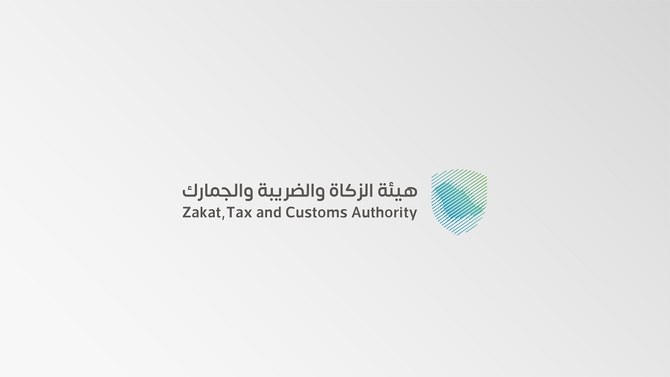
RIYADH: Saudi Arabia’s Zakat, Tax and Customs Authority has thwarted an attempt to smuggle into the Kingdom 27.6 kg of cocaine found hidden inside the air conditioner of a shipment of potatoes.
Authorities at Jeddah Islamic Port arrested two individuals who were set to receive the shipment.
In a statement ZATCA said it is “committed to stiffening customs control of the Kingdom’s imports and exports, stressing that it will stay vigilant to thwart smuggling attempts and ensure the protection of the society.”
Members of the public are encouraged to report any drug-related crimes by calling 1910, via e-mail [email protected], or through the international number 00966114208417.
Saudi ministries sign deal to achieve goals in fields of culture, human resources
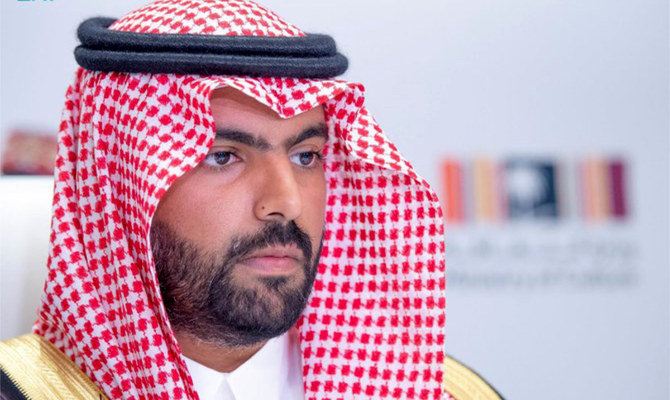
- Move aligns with aims of Saudi Vision 2030
RIYADH: Saudi Arabia’s Minister of Culture Prince Badr bin Abdullah bin Farhan, and the Minister of Human Resources and Social Development Ahmed Al-Rajhi signed a cooperation agreement on Monday aimed at achieving their respective goals.
The agreement will also work to develop human capital in the culture and arts sectors.
It is hoped the partnership will lead to the development of local cultural identity; the growth in local economic interaction; an increase in job opportunities and social development; and the creation of a legislative and regulatory environment that encourages investment and innovation in the cultural sector.
It is expected this will lead to increased economic activity and new job opportunities, targets which form part of Saudi Vision 2030, the Saudi Press Agency reported.
The ministries will study ways to encourage and motivate the participation of the private sector in developing the culture and arts sectors as part of the agreement.


